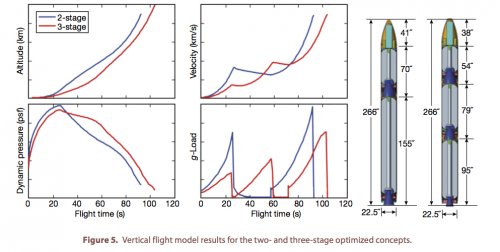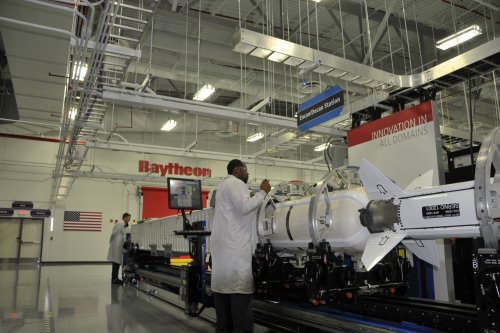- Joined
- 21 April 2009
- Messages
- 13,566
- Reaction score
- 7,193
House Would Launch New Weapon Development To Counter Russian Cruise Missile
Posted: April 22, 2015
House lawmakers are laying the groundwork for the Pentagon in fiscal year 2016 to start -- if necessary -- a major new weapon system program to counter Russia's development of a ground-launched cruise missile, which Washington maintains violates the 1987 Intermediate-Range Nuclear Forces Treaty.
The House Armed Services strategic forces subcommittee, in its mark of the FY-16 defense authorization bill, grants the Defense Department wide latitude to begin work on a yet-to-be-identified capability in the event the White House determines Russia is not taking action "to return to full compliance with the INF Treaty," the draft bill states.
The draft bill would authorize funding from defense-wide research, development, test and evaluation accounts to begin developing "counterforce capabilities to prevent intermediate-range ground-launched ballistic missile and cruise-missile attacks, including capabilities that could be acquired from allies."
In addition, the draft legislation would allow the Pentagon to start developing "countervailing strike capabilities to enhance the armed forces of the United States or allies of the United States, including capabilities that may be acquired from allies."
Last July, the State Department's Arms Control Verification and Compliance Bureau published a report declaring the Russian Federation "in violation of its obligations under the INF Treaty not to possess, produce, or flight-test a ground-launched cruise missile (GLCM) with a range capability of 500 km to 5,500 km, or to possess or produce launchers of such missiles."
Since then, DOD officials have repeatedly voiced concerns about Russia's development of this new ground-launched cruise missile, noting the Pentagon is exploring a wide range of options for how to respond, including active defense to counter the new cruise missile, counterforce capabilities, and new strike capabilities.
Last month, Defense Secretary Ash Carter told the House Armed Services Committee the Pentagon is exploring its options. "So we are looking at our alternatives in the areas of defense against the systems that they might field in violation of the INF treaty, counterforce options and countervailing options," Carter told the panel on March 18. "All of those are available to us. We're looking at all of those because the Russians need to remember this is a two-way street."
Gen. Martin Dempsey, chairman of the Joint Chiefs of Staff, at the same hearing said he believed Washington has to make it clear to Moscow that the INF treat violation cannot stand.
"I think we have to make it very clear that . . . things like their compliance with the INF treaty -- that there will be political, diplomatic and potentially military costs in terms of the way we posture ourselves and the way we plan and work with our allies to address those provocations," Dempsey said. "So I've seen it, it concerns me greatly. I certainly would counsel them not to roll back the clock to previous experiences."
Air Force Gen. Philip Breedlove, U.S. European Command head, told the House Armed Services Committee on Feb. 25 that "we need to first and foremost signal that we cannot accept this change and that if this change is continued that we will have to change the cost calculus for Russia in order to help find their way to a less bellicose position." -- Jason Sherman
-----------------------------------------------------------------------------------
Both strike and defensive weapons. Cross posted under the Nuke News Thread as well please use this thread for commentary/speculation if there is any.
Posted: April 22, 2015
House lawmakers are laying the groundwork for the Pentagon in fiscal year 2016 to start -- if necessary -- a major new weapon system program to counter Russia's development of a ground-launched cruise missile, which Washington maintains violates the 1987 Intermediate-Range Nuclear Forces Treaty.
The House Armed Services strategic forces subcommittee, in its mark of the FY-16 defense authorization bill, grants the Defense Department wide latitude to begin work on a yet-to-be-identified capability in the event the White House determines Russia is not taking action "to return to full compliance with the INF Treaty," the draft bill states.
The draft bill would authorize funding from defense-wide research, development, test and evaluation accounts to begin developing "counterforce capabilities to prevent intermediate-range ground-launched ballistic missile and cruise-missile attacks, including capabilities that could be acquired from allies."
In addition, the draft legislation would allow the Pentagon to start developing "countervailing strike capabilities to enhance the armed forces of the United States or allies of the United States, including capabilities that may be acquired from allies."
Last July, the State Department's Arms Control Verification and Compliance Bureau published a report declaring the Russian Federation "in violation of its obligations under the INF Treaty not to possess, produce, or flight-test a ground-launched cruise missile (GLCM) with a range capability of 500 km to 5,500 km, or to possess or produce launchers of such missiles."
Since then, DOD officials have repeatedly voiced concerns about Russia's development of this new ground-launched cruise missile, noting the Pentagon is exploring a wide range of options for how to respond, including active defense to counter the new cruise missile, counterforce capabilities, and new strike capabilities.
Last month, Defense Secretary Ash Carter told the House Armed Services Committee the Pentagon is exploring its options. "So we are looking at our alternatives in the areas of defense against the systems that they might field in violation of the INF treaty, counterforce options and countervailing options," Carter told the panel on March 18. "All of those are available to us. We're looking at all of those because the Russians need to remember this is a two-way street."
Gen. Martin Dempsey, chairman of the Joint Chiefs of Staff, at the same hearing said he believed Washington has to make it clear to Moscow that the INF treat violation cannot stand.
"I think we have to make it very clear that . . . things like their compliance with the INF treaty -- that there will be political, diplomatic and potentially military costs in terms of the way we posture ourselves and the way we plan and work with our allies to address those provocations," Dempsey said. "So I've seen it, it concerns me greatly. I certainly would counsel them not to roll back the clock to previous experiences."
Air Force Gen. Philip Breedlove, U.S. European Command head, told the House Armed Services Committee on Feb. 25 that "we need to first and foremost signal that we cannot accept this change and that if this change is continued that we will have to change the cost calculus for Russia in order to help find their way to a less bellicose position." -- Jason Sherman
-----------------------------------------------------------------------------------
Both strike and defensive weapons. Cross posted under the Nuke News Thread as well please use this thread for commentary/speculation if there is any.












